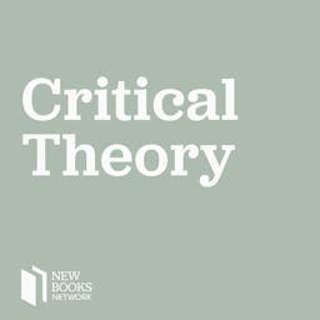
Alexandra Freidus, "Unequal Lessons: School Diversity and Educational Inequality in New York City" (NYU Press, 2025)
Unequal Lessons: School Diversity and Educational Inequality in New York City (NYU Press, 2025) argues that diversity and racial integration efforts are not sufficient to address educational inequality. New York City schools are among the most segregated in the nation. Yet over seven decades after the Brown v. Board of Education decision, New Yorkers continue to argue about whether school segregation matters. Amid these debates, Alexandra Freidus dives deep into the roots of racial inequality in diversifying schools, asking how we can better understand both the opportunities and the limits of school diversity and integration. Unequal Lessons is based on six years of observations and interviews with children, parents, educators, and district policymakers about the stakes of racial diversity in New York City schools. The book examines what children learn from diversity, exploring both the costs and benefits of school integration. By drawing on students’ first-hand experiences, Freidus makes the case that although a focus on diversity offers many benefits to students, it often reinscribes, rather than diminishes, existing inequalities in school policy and practice. The idea of diversity for its own sake is frequently seen as the solution, with students of color presumed to benefit from their experiences with white students, while schools fail to address structural inequality. Though educators and advocates often focus on diversity out of a real desire to make a positive difference in students’ lives, this book makes clear the gaps between good intentions and educational injustice. Learn more about your ad choices. Visit megaphone.fm/adchoices Support our show by becoming a premium member! https://newbooksnetwork.supportingcast.fm/critical-theory
10 Aug 28min

Irvin Weathersby Jr., "In Open Contempt: Confronting White Supremacy in Art and Public Space" (Viking, 2025)
Amid the ongoing reckoning over America’s history of anti-Black racism, scores of monuments to slaveowners and Confederate soldiers still proudly dot the country’s landscape, while schools and street signs continue to bear the names of segregationists. With poignant, lyrical prose, cultural commentator Irvin Weathersby confronts the inescapable specter of white supremacy in our open spaces and contemplates what it means to bear witness to sites of lasting racial trauma.Professor Weathersby takes us from the streets of his childhood in New Orleans’s Lower Ninth Ward to the Whitney Plantation; from the graffitied pedestals of Confederate statues lining Monument Avenue in Richmond, Virginia, to the location of a racist terror attack in Charlottesville; from the site of the Wounded Knee massacre in South Dakota to a Kara Walker art installation at a former sugar factory in Brooklyn, New York. Along the way, he challenges the creation myths embedded in America’s landmarks and meets artists, curators, and city planners doing the same. Urgent and unflinchingly intimate, In Open Contempt (Viking, 2025) offers a hopeful reimagining of the spaces we share in order to honor our nation’s true history, encouraging us to make room for love as a way to heal and treat each other more humanely. Find Professor Weathersby at his website, where you can order In Open Contempt, check out his other writings, and attend upcoming events. Host Sullivan Summer can be found at her website, on Instagram, and on Substack, where she and Professor Weathersby continue their conversation. Learn more about your ad choices. Visit megaphone.fm/adchoices Support our show by becoming a premium member! https://newbooksnetwork.supportingcast.fm/critical-theory
9 Aug 1h 8min

Eli Zaretsky, “Political Freud: A History” (Columbia UP, 2015)
Back in the early 70s, Eli Zaretsky wrote for a socialist newspaper and was engaged to review a recently released book, Psychoanalysis and Feminism by Juliet Mitchell. First, he decided, he’d better read some Freud. This started a life-long engagement with psychoanalysis and leftist politics, and his new book Political Freud: A History (Columbia University Press, 2015) conveys the richness of his decades of reading Freud. Following his 2004 Secrets of the Soul: A Social and Cultural History of Psychoanalysis, Zaretsky’s latest book, some would call it a companion, is comprised of five essays analyzing the complexity of the mutual influencing of capitalism, social/political history, and psychoanalysis, with particular attention to how and whether people conceive of their own interiority as political. (Particularly timely is chapter two: “Beyond the Blues: the Racial Unconscious and Collective Memory” which explores African American intellectual engagement with psychoanalysis as a tool for understanding oppression.) “Whereas introspection did once define an epoch of social and cultural history– the Freudian epoch– there were historical reasons for this, and it was bound to pass” says Zaretsky. But Political Freud is also a compelling argument for how badly we still need a conception of the self–or ego– with a critical and non-normalizing edge. Eli Zaretsky is a professor of history at The New School, writes and teaches about twentieth-century cultural history, the theory and history of capitalism (especially its social and cultural dimensions), and the history of the family. He is also the author of Why America Needs a Left, Secrets of the Soul: A Social and Cultural History of Psychoanalysis and Capitalism, the Family and Personal Life. Learn more about your ad choices. Visit megaphone.fm/adchoices Support our show by becoming a premium member! https://newbooksnetwork.supportingcast.fm/critical-theory
8 Aug 56min

Daniel José Gaztambide, "Decolonizing Psychoanalytic Technique: Putting Freud on Fanon's Couch" (Palgrave Macmillan, 2024)
Both new and seasoned psychotherapists wrestle with the relationship between psychological distress and inequality across race, class, gender, and sexuality. How does one address this organically in psychotherapy? What role does it play in therapeutic action? Who brings it up, the therapist or the patient? Daniel José Gaztambide addresses these questions by offering a rigorous decolonial approach that rethinks theory and technique from the ground up, providing an accessible, evidence-informed reintroduction to psychoanalytic practice. He re-examines foundational thinkers from three traditions--Freudian, relational-interpersonal, and Lacanian--through the lens of revolutionary psychiatrist Frantz Fanon, and offers a detailed analysis of Fanon's psychoanalytic practice. Drawing on rich yet grounded discussions of theory and research, Gaztambide presents a clinical model that facilitates exploration of the social in the clinical space in a manner intimately related to the patient's presenting problem. In doing so, this book demonstrates that clinicians no longer have to choose between attending to the personal, interpersonal, or sociopolitical. It is a guide to therapeutic action "on the couch," which envisions political action "off the couch" and in the streets. Decolonizing Psychoanalytic Technique provides a comprehensive, practice-oriented and compelling guide for students, practitioners, and scholars of critical, multicultural and decolonial approaches to psychotherapy. Learn more about your ad choices. Visit megaphone.fm/adchoices Support our show by becoming a premium member! https://newbooksnetwork.supportingcast.fm/critical-theory
4 Aug 1h

William Marx, "Libraries of the Mind" (Princeton UP, 2025)
Erich Auerbach wrote his classic work Mimesis, a history of narrative from Homer to Proust, based largely on his memory of past reading. Having left his physical library behind when he fled to Istanbul to escape the Nazis, he was forced to rely on the invisible library of his mind. Each of us has such a library—if not as extensive as Auerbach’s—even if we are unaware of it. In this erudite and provocative book, William Marx explores our invisible libraries—how we build them and how we should expand them.Libraries, Marx tells us, are mental realities, and, conversely, our minds are libraries. We never read books apart from other texts. We take them from mental shelves filled with a variety of works that help us understand what we are reading. And yet the libraries in our mind are not always what they should be. The selection on our mental shelves—often referred to as canon, heritage, patrimony, or tradition—needs to be modified and expanded. Our intangible libraries should incorporate what Marx calls the dark matter of literature: the works that have been lost, that exist only in fragments, that have been repurposed by their authors, or were never written in the first place. Marx suggests methods for recovering this missing literature, but he also warns us that adding new titles to our libraries is not enough. We must also adopt a new attitude, one that honors the diversity and otherness of literary works. We must shed our preconceptions and build within ourselves a mental world library. William Marx is professor of comparative literature at the Collège de France. He is the author of The Hatred of Literature, The Tomb of Oedipus: Why Greek Tragedies Were Not Tragic, and other books. Morteza Hajizadeh is a Ph.D. graduate in English from the University of Auckland in New Zealand. His research interests are Cultural Studies; Critical Theory; Environmental History; Medieval (Intellectual) History; Gothic Studies; 18th and 19th Century British Literature. YouTube channel. Twitter. Learn more about your ad choices. Visit megaphone.fm/adchoices Support our show by becoming a premium member! https://newbooksnetwork.supportingcast.fm/critical-theory
3 Aug 1h 5min

Sarah E. K. Smith, "Trading on Art: Cultural Diplomacy and Free Trade in North America" (UBC Press, 2025)
hat is the relationship between culture and trade? In Trading on Art: Cultural Diplomacy and Free Trade in North America Sarah E. K. Smith, an Associate Professor in the Faculty of Information and Media Studies at Western University and the Canada Research Chair (Tier 2) in Art, Culture and Global Relations, examines the history of cultural relations between Canada, the USA and Mexico at the turn of the twenty-first century. The book considers how North America was conceptualised by cultural practices such as art and video, as well as how the arts engaged and responded to free trade agreements in that period. As the world confronts a very different trading and cultural context, the book is essential reading for anyone interested in the future, as well as the past, of cross-national cultural exchange. The book will also be available open access in 2026 Learn more about your ad choices. Visit megaphone.fm/adchoices Support our show by becoming a premium member! https://newbooksnetwork.supportingcast.fm/critical-theory
2 Aug 34min

Philip Cunliffe, "The National Interest: Politics After Globalization" (Polity Press, 2025)
Globalization is over. With US president Donald Trump pursuing an 'America First' agenda in trade and foreign policy, everyone now recognises the urgency of defending their own country's national interest. But what is the national interest and why did it disappear from the political agenda? Will Trump restore American national interests, or will he betray them? How might we know the difference? The National Interest: Politics After Globalization (Polity Press, 2025) answers these questions. It explains how and why globalist political leaders and bureaucrats abandoned the national interest over the past thirty years. Even today, many of our elites still sneer at the concept as an anachronism in an age of global environmental collapse and 'polycrisis'. But without it, there can be no political representation, and without representation there can be no democratic accountability. The national interest can be revived as part of a strategy of nation-building and national rebirth. This book makes the case for such a revival, heralding a new era of democratic renewal and international cooperation. Philip Cunliffe is Associate Professor of International Relations at the Department of Risk and Disaster Reduction, University College London. Caleb Zakarin is editor of the New Books Network. Learn more about your ad choices. Visit megaphone.fm/adchoices Support our show by becoming a premium member! https://newbooksnetwork.supportingcast.fm/critical-theory
2 Aug 58min

Chris Washington, "Nonbinary Jane Austen" (U Minnesota Press, 2025)
In Nonbinary Jane Austen, Chris Washington theorizes how Jane Austen envisions a nonbinary future that traverses the two-sex model of gender that we can supposedly see solidifying in the eighteenth century. Arguing that her writing works to abolish gender exclusivity altogether, Washington shows how she establishes a politics that ushers in a future built on plurality and possibility. Chris Washington is associate professor of English at Francis Marion University in South Carolina, USA. Washington is the editor of a recent Norton Critical Edition of Mary Shelley’s The Last Man and is the author of Nonbinary Jane Austen, Romantic Revelations: Visions of Post-Apocalyptic Hope and Life in the Anthropocene (University of Toronto Press, 2019), and essays on the literature of the Romantic period and on contemporary theory and philosophy. Tristan Burke researches and teaches eighteenth and nineteenth-century literature and continental philosophy. He is the author of Byronism, Napoleonism, and Nineteenth-Century Realism: Heroes of Their Own Lives? (Routledge, 2022) Learn more about your ad choices. Visit megaphone.fm/adchoices Support our show by becoming a premium member! https://newbooksnetwork.supportingcast.fm/critical-theory
2 Aug 1h 9min





















